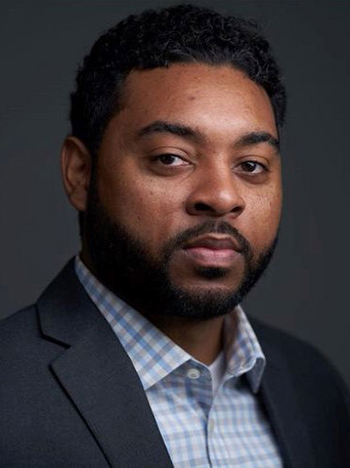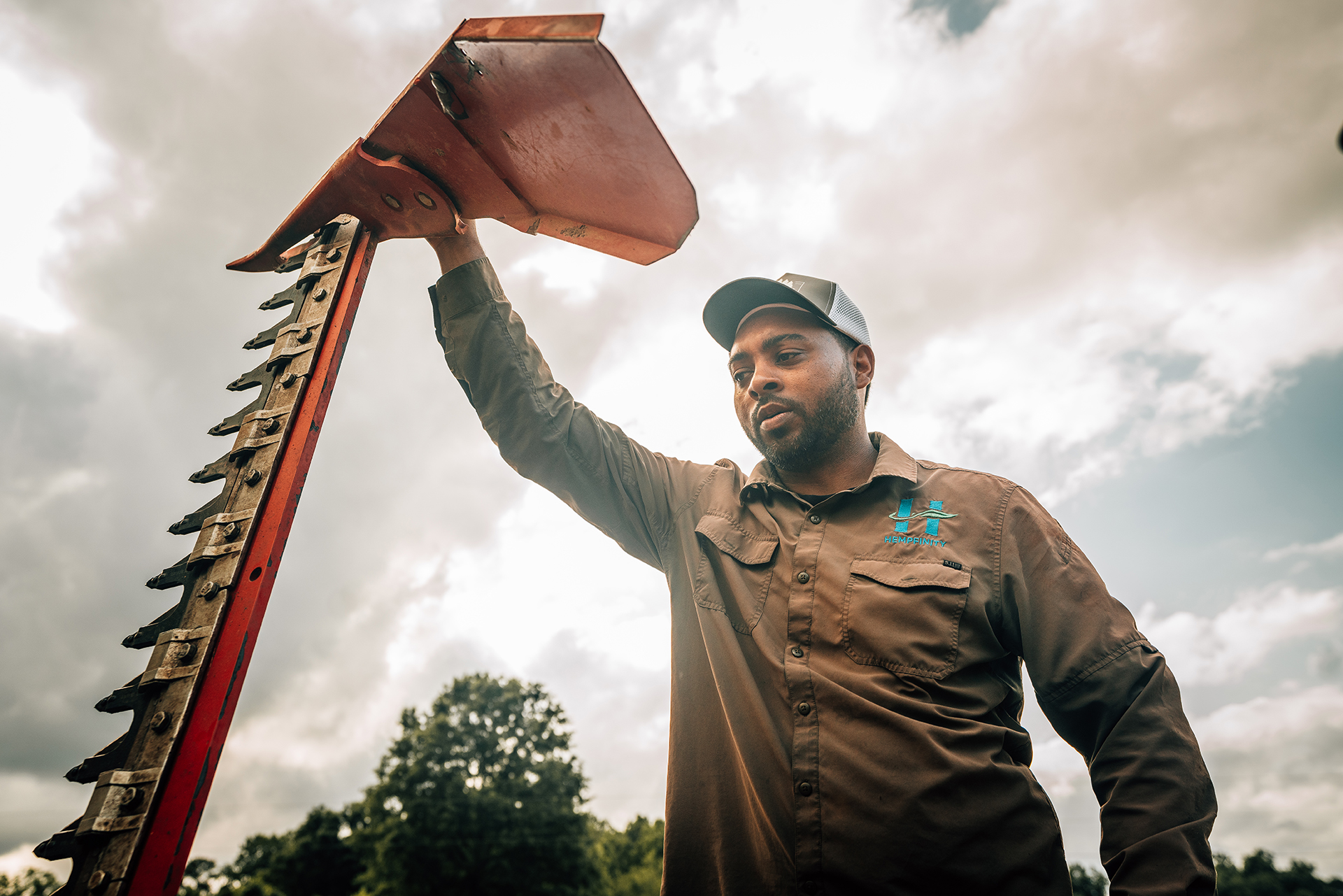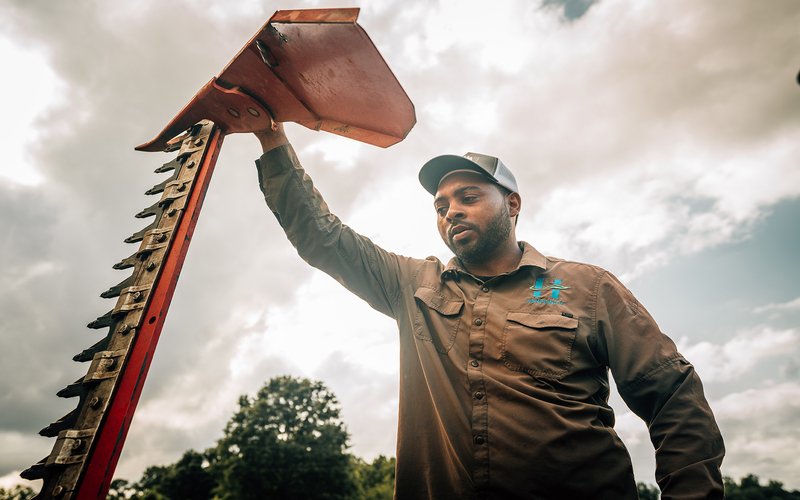Patrick Brown is a fourth-generation Black farmer in Henderson, North Carolina. He considers himself a steward of family land. Brown’s great-grandfather Byron Brown earned 200 acres of land by sharecropping after the Civil War ended.
The land gradually grew to 2,000 acres. Over the next couple of hundred years, the Brown family held on to some of the acreage and continued to improve it. Patrick took over his father’s portion in 2015 and added hemp crops in 2016.
Brown never imagined he would manage a large farm. Although he was raised working in the fields for the family, he left home to earn a degree. He ended up working with the U.S. Department of Agriculture and traveled the world as an agricultural adviser for the United States Agency for International Development, focused on sustainability.

When his father became ill in 2008, Brown moved home and used his agricultural experience to improve profits at the family farm by cultivating multiple crops. Hemp caught his attention when the pilot program licenses were announced in North Carolina; he obtained a license in 2016.
Brown liked the regenerative properties of hemp, which is known for improving soil and needing little water. The family grew about 18 acres of hemp to produce CBD for their brand of products. It also gave them an opportunity to learn more about the crop so they could decide whether to expand their hemp acreage.
In 2019, VF Corporation, an American global apparel and footwear company, reached out to Brown about using a portion of his farm’s hemp for research for the shoe and clothing line Vans. Brown started growing hemp for fiber and hurd and increased the farm’s hemp acreage from the original 18 acres to more than 200 acres today.
Working with VF, Brown is conducting research trials testing hemp seed genetics and other regenerative farming practices for successful crops. His team evaluates viability with a focus on carbon sequestration to reduce global warming, while also making sure the crop can work on an existing farm.
In 2021, he bought Oakley Grove, the former plantation where his ancestors were enslaved, with plans to expand farming on the land. Brown notes that people have a negative view of plantations because at most historic sites, tours focus on the slave owners.

He plans to renovate the large house and says welcoming people to the former plantation “gives us an opportunity to tell our story with a positive view.” At Oakley Grove, he explains, tours will focus on the enslaved people who once lived there.
Patagonia, the outdoor recreation brand long known for using recycled materials and innovative fibers, learned about Brown’s work and produced a short film highlighting his endeavors. In the film, Brown tells his story and describes his plans to build a BIPOC farming community that will include tours, horticulture classes, and even serve as an event venue for barnyard weddings.
Brown is looking forward to increasing hemp acreage at his farm, along with other farms in surrounding states. He also hopes to provide fiber for Patagonia. He understands hemp can regenerate soil and is proud that by focusing on organic hemp practices — eliminating pesticides, herbicides, and synthetic fertilizers — he has been able to regenerate his family land.
This article first appeared in Volume 5 Issue 1 of Cannabis & Tech Today. Read the full issue here.







